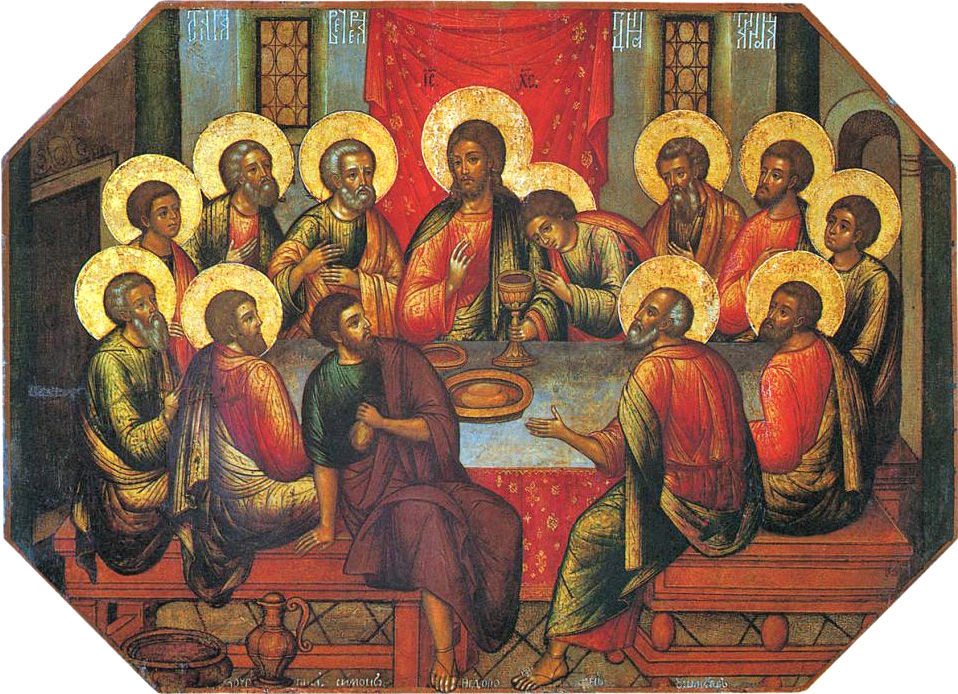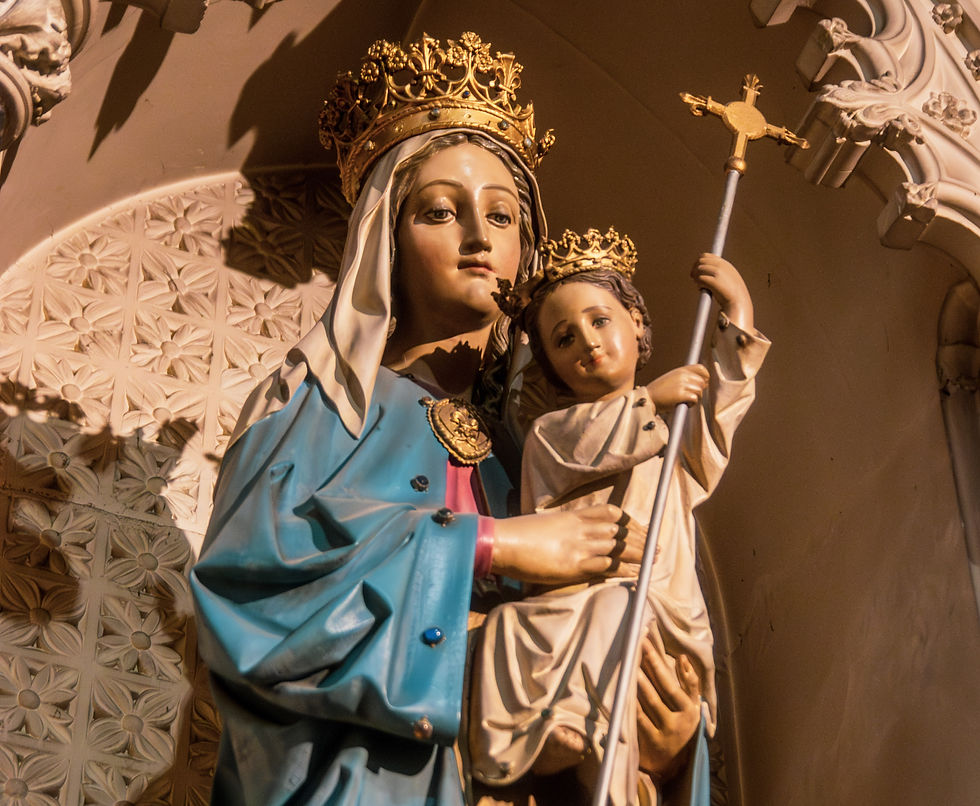First Holy Communion
- St Antony's Parish

- Aug 31, 2024
- 4 min read
Updated: Jun 15, 2025
Out of all the seven sacraments of the Church, perhaps none expresses the depth of God's love more powerfully than the Eucharist. It is the very heart of our faith, called by the Church “the source and summit of the Christian life.” The Eucharist is not just a symbolic reminder of Jesus, it is Jesus: His Body, Blood, Soul, and Divinity, truly and substantially present under the appearances of bread and wine.
First Holy Communion is a joyful and sacred milestone in a child's faith journey. It is the moment when, for the first time, they receive the Body and Blood of Christ in the Eucharist, deepening their relationship with Jesus and the Church. First Holy Communion classes for children in school Year 4 and above will be announced in the parish newsletter in September with the registration information. Children must be registered and attend the programme from October through until May, when the first communion Masses are held.
For adults entering the Catholic Church and wishing to receive their First Holy Communion, we invite you to join our RCIA (Rite of Christian Initiation of Adults) program.
If you are a baptised Catholic returning to the Church and have not yet received your First Holy Communion, we invite you to contact the parish office or speak with a priest to learn more about how to prepare for this important sacrament.

Real Presence, Real Union:
At the Last Supper, Jesus said:
“This is my body, which will be given up for you… this is the chalice of my blood, the blood of the new and eternal covenant” (cf. Luke 22:19–20).
And in John’s Gospel, He declares:
“My flesh is true food, and my blood is true drink. Whoever eats my flesh and drinks my blood has eternal life” (John 6:55–56).
These aren’t just metaphors or symbolic words. Jesus meant exactly what He said.
The Church teaches that through the words of consecration spoken by the priest during the Mass, the bread and wine become the actual Body and Blood of Christ. This is the Real Presence, and it is central to Catholic worship.
When we receive the Eucharist, we are not receiving a thing, but a Person, Jesus Christ Himself. He comes to dwell in us, nourish our souls, and unite us ever more closely to Him.
Spiritual Nourishment:
The Eucharist is our daily manna, just as the Israelites were fed with bread from heaven during their journey through the desert. In our own spiritual journey, we need nourishment not only for the body but for the soul. The Eucharist strengthens us with grace, helping us resist sin, grow in virtue, and deepen our union with God.
The Mass is not simply a meal, it is also a sacrifice. At every celebration of the Eucharist, the one sacrifice of Christ on Calvary is made present on the altar. Not as a new or repeated crucifixion, but as a re-presentation of the one eternal sacrifice of Christ, offered in an unbloody manner. As in the Jewish Passover, the faithful are not just remembering a past event, they are participating in it.
St. Paul reminds us: “For as often as you eat this bread and drink the cup, you proclaim the Lord’s death until he comes” (1 Corinthians 11:26).
The New Covenant:
The Eucharist is the sign and seal of the New Covenant, foretold by the prophets and fulfilled by Christ. This covenant is not only about law or promise, but it is about relationship. And in Scripture, that relationship is often described in terms of marriage. Christ is the Bridegroom, and the Church is His Bride (cf. Ephesians 5:25–32).
In the Eucharist, the Bridegroom gives Himself completely to His Bride. This is not a distant or abstract love. It is total, personal, and self-giving. Just as in a marriage, husband and wife become one flesh, so too in Holy Communion Christ unites Himself to us. We receive all of Him, His Body, Blood, Soul, and Divinity. This is the deepest intimacy possible between God and the human soul.
The Eucharist, then, is a foretaste of the wedding feast of the Lamb, the heavenly banquet described in Revelation, where the union between Christ and His Church will be complete and eternal (cf. Revelation 19:9).
Receiving Worthily:
Because of the Eucharist’s sacred reality, the Church teaches that we must receive it in a state of grace. This means we must be free from mortal sin, a grave sin committed with full knowledge and full consent, when approaching the altar. St. Paul gives a sober warning:
“Whoever eats the bread or drinks the cup of the Lord unworthily will be guilty of profaning the body and blood of the Lord” (1 Corinthians 11:27).
If someone is aware of having committed mortal sin, they should first receive the Sacrament of Reconciliation before receiving Communion. This is not meant to exclude, but to ensure that each person can receive the Eucharist with a heart open to grace and ready to be united with Christ in love.

